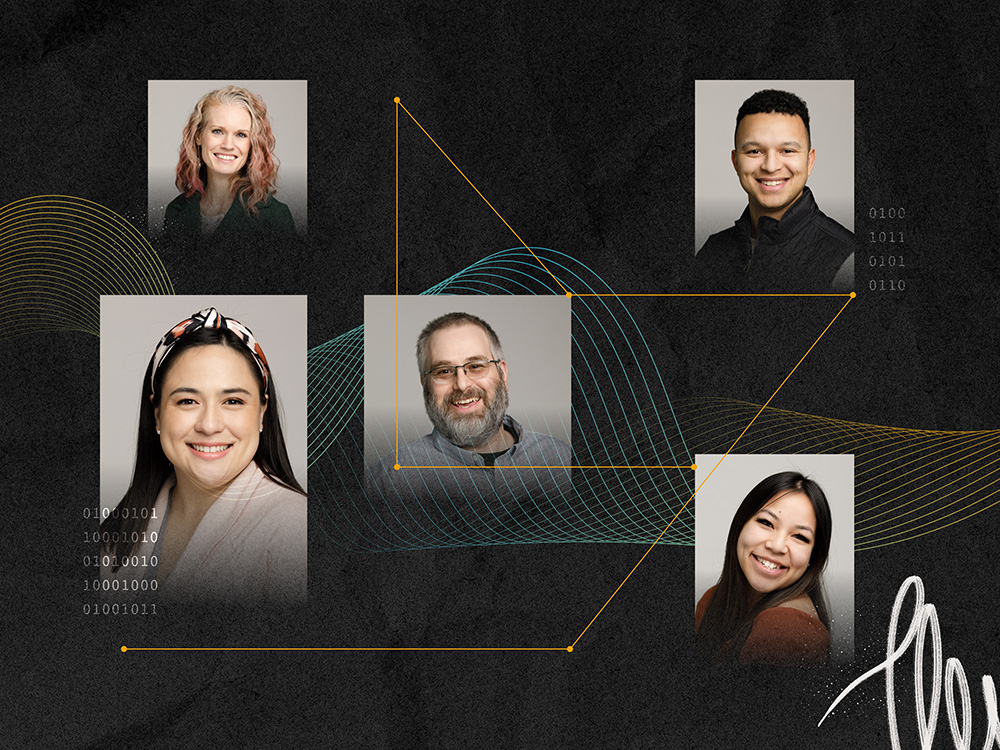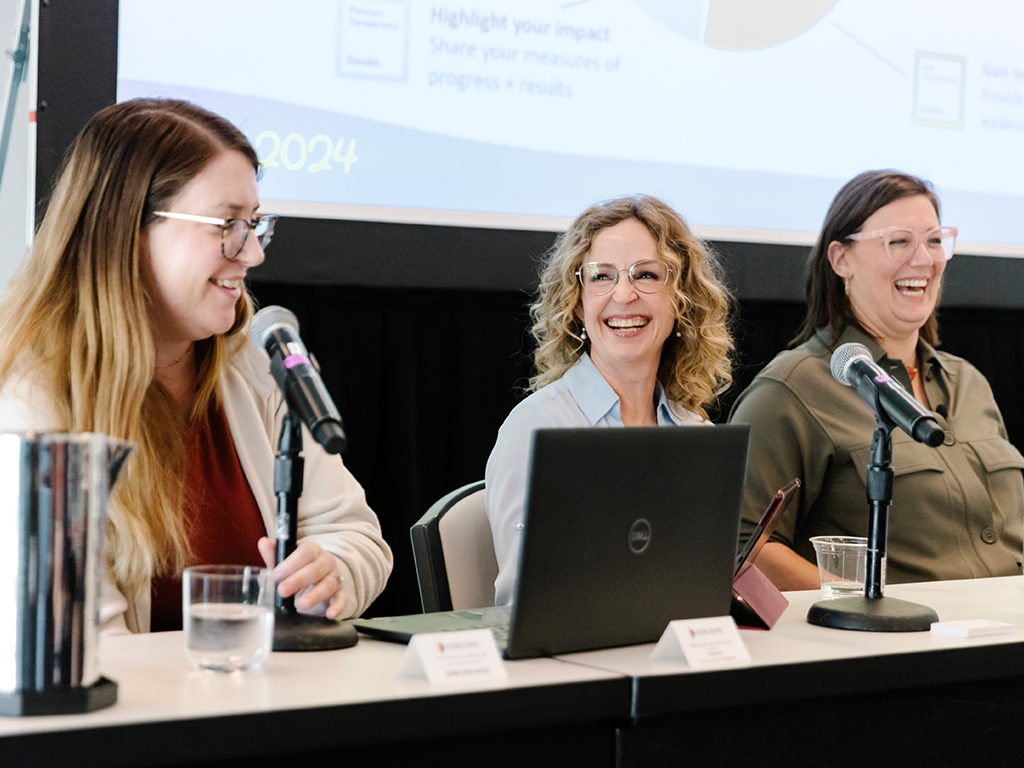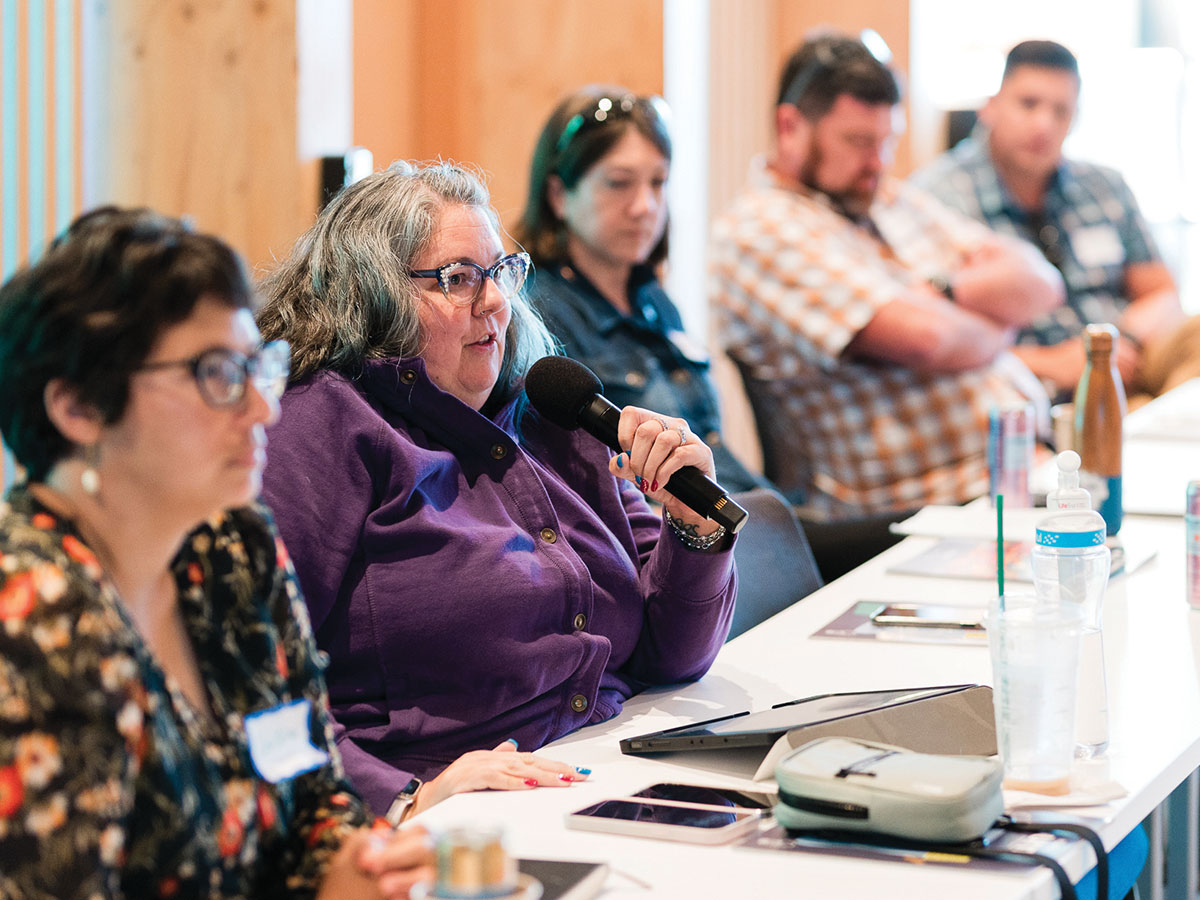
My friend and coworker Makeda Adisu is an incredible researcher. Recently, she reached out to several Submittable grantmakers and their applicants to chat about artificial intelligence (AI). Submittable is thinking deeply about how we will (and won’t) leverage AI in our platform. And naturally, our customers and their applicants are the main influencers of what we build. So it is critical that we explore AI with both groups to ensure we have a solid understanding of their hopes, fears, and expectations.
What we discovered was really powerful.
Yes, there’s plenty of excitement about AI and how it’s going to shape our lives and ways of working. And yes, there’s plenty of handwringing that AI is coming for all our jobs (not to mention the possibility of a robot uprising!). But those aren’t the things keeping the social sector awake at night.
What we learned, and what I think is most profound, is this: grantmakers and applicants are both fearful that AI will cause us to lose our humanity. Grantmakers are concerned that applicants will over-rely on generative AI to speak for them in grant applications, overshadowing their individual voices, thoughts, and reflections.
One funder stated that using AI to populate applications with common information like budgets or a mission statement is fine. But using it to answer complex questions that require deep thinking, reflection, and expertise would diminish the human experience and voice that is so critical to our work.
Another funder raised apprehensions that a grant application might stem from skillful prompt writing, rather than truly reflecting an applicant’s capacity to develop a thoughtful proposal that reflects their own experiences and ideas.
There are deep concerns among applicants, too. They fear grantmakers might replace the role of humans with machines in the review and decision stages, and that their applications could be overlooked or rejected because a bot didn’t find a particular keyword or phrase.
Other applicants fear that there will be uneven access to AI tools and training, resulting in deeper inequities in the grantmaking process that favor large and well-funded nonprofits.
Both groups—funders and applicants—are hopeful they’ll see a few of the promised benefits of AI. They think AI can help automate administrative tasks, allowing them to focus more on the deep thinking and strategic work that really matters. They believe AI can help improve the quality of grant proposals, and even help nonprofits build much needed capacity.
But I keep going back to the idea of a dystopian future where generative AI bots are writing, reviewing, and making decisions about grant applications. Philanthropy and social impact work are founded on relationships and social interaction. We come together to talk about what’s ailing our communities, and to brainstorm ideas and solutions based on a wide variety of voices and experiences and perspectives. We work together to create theories of change, to develop interventions, and to review progress. We calibrate and recalibrate until we finally see impact. This is the work of people coming together, working to achieve a common mission. It’s our lived experiences, emotions, and voices that make us uniquely qualified to find and implement real solutions.
There’s a role for AI in this work, but it’s not in taking over the human aspects of social impact. AI will never be a replacement for our uniquely human insights and ideas, and I hope we never try to outsource our humanity to machines.
Let’s use AI responsibly—to save us from endless cutting and pasting, to fast-track the development of spreadsheets and dashboards, to automate the most mundane tasks that at times overwhelm us and keep us from focusing on what really matters: the relationships we build and deepen when working together to solve the world’s most pressing issues.



